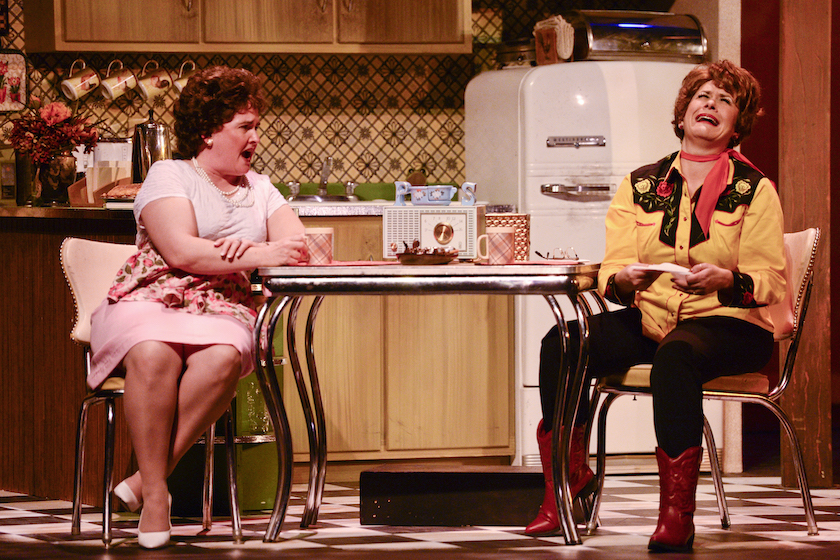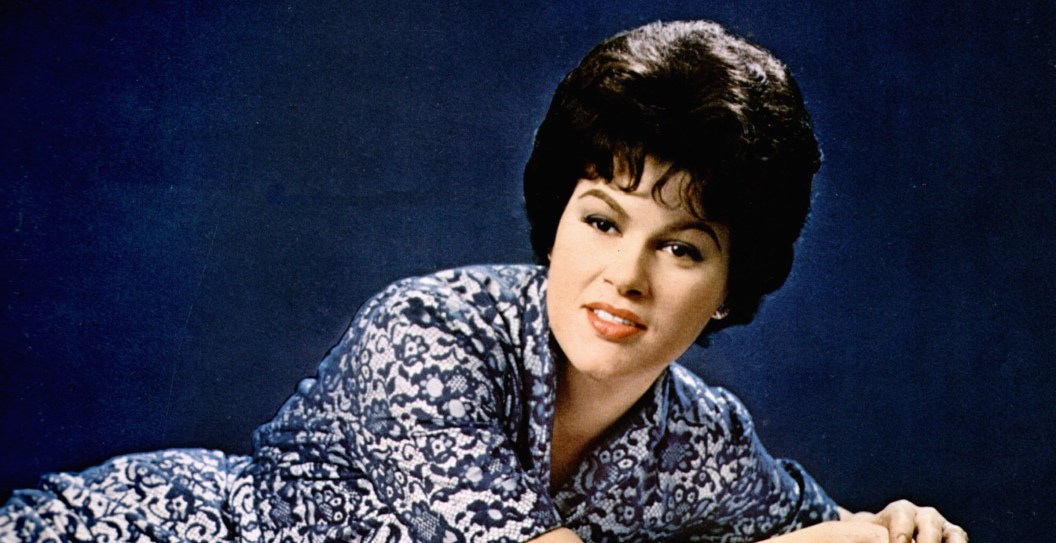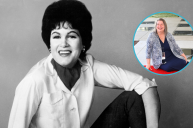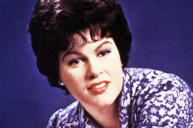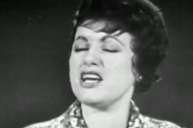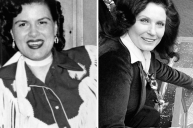Even decades after her untimely death, Patsy Cline remains a pop culture fixture. Her hit songs were responsible for the advent of the Nashville Sound, which blended country and pop music, and introduced Music City to a whole new audience in the early '60s. To this day, songs such as "She's Got You" need no introduction, whether the listener is a country fan or not.
Videos by Wide Open Country
A March 5, 1963, plane crash in Middle Tennessee took Cline's life when she was just 30 years old. She was in her creative prime at the time of her death and was only about six years into her run as a country hitmaker for Decca Records. Cline will always be one of the rare vocalists who broke the mold and changed country music forever.
Cline's legacy has only grown since her tragic passing. Her 1968 Greatest Hits compilations became one of the top-selling country albums of all time. With 10 million copies sold or streamed, it's in the same sales figures stratosphere as albums by the Eagles, Elvis Presley, Lionel Richie, Madonna and others.
In 1973, she became the first woman to be inducted as a solo artist into the Country Music Hall of Fame. Nowadays, she's got her own museum not too far from the Hall of Fame's current location.
Here are 10 things you may not know about the Grammy Lifetime Achievement award recipient.
Michael Ochs Archives/Getty Images Though she became known around the world as Patsy, Cline was born Virginia Patterson Hensley and for a time went by "Ginny." Her manager, Bill Peer, gave her the name "Patsy" from her middle name. Cline wed her first husband, Gerald Cline, in 1953. She kept her surname through marriage as her stage name. Johnny Franklin/andmorebears/Getty Images While working as a soda jerk and a waitress, Cline entered a variety of talent shows in her hometown of Winchester, Va. Having watched performers through the windows of the local radio station, Cline approached a disc jockey about singing on his program. Naturally, Cline was an instant hit. Soon, she had regular gigs at regional nightclubs. Back then, live radio performances served as invaluable promotions for gigs at clubs and school auditoriums, and audiences for such programming ate up broadcasts involving child prodigies. A few years later, Cline traveled to New York to compete on "Arthur Godfrey's Talent Scouts," a popular talent search program similar to "American Idol." She performed "Walkin' After Midnight" on the show, which helped catapult the track to No. 2 on the country charts and No. 12 on the pop charts. Thus, Cline became one of the first country artists with a major crossover hit and an early product of a singing competition series. Michael Ochs Archives/Getty Images According to the documentary "Remembering Patsy," Cline couldn't read sheet music. Of course, that didn't stop her from becoming a musical genius. She was self-taught and had perfect pitch, even as a child. Michael Ochs Archives/Getty Images Cline didn't care much for rules. To the disdain of some Opry members, Cline broke gender norms by becoming the first woman to wear pants on the Grand Ole Opry, which she petitioned to join. She didn't believe women in her field — or anyplace else in society — needed to be submissive or demure. She was proudly outspoken and bold. Cline was also the first woman country singer to headline in Vegas. Even after her death, Cline continued to set records. In 1973, she became the first solo woman artist to be inducted into the Country Music Hall of Fame. Patsy Cline's Greatest Hits, released four years after her death, became one of the all-time best-selling country albums. GAB Archive/Redferns If you were a songwriter in the early '60s, a sure way to get a hit was to have Patsy Cline record your song. But it was about more than just commercial success. Songwriters loved the magic that Cline brought to their lyrics. Willie Nelson called Patsy's recording of "Crazy" his "favorite all-time song of mine that anyone ever did." Some of Nashville's finest songwriters penned Cline's hits. Mel Tillis wrote the slow-burning "Strange." Hank Cochran and Harlan Howard penned "I Fall to Pieces." Along with producer Owen Bradley, Cline defined the Nashville Sound and topped both the country and pop charts. Jason Kempin/Getty Images for Lifetime "The Cline," as she called herself, was outspoken, brazen and bold, but she was also incredibly kind and loyal. In "Remembering Patsy," guitar great and "Hee Haw" star Roy Clark recalled how Cline refused to record a song Clark had planned to cut for himself out of respect for her fellow artist. She was especially supportive of other women artists. When Cline was in the hospital following a near-fatal head-on car crash, she reached out to a young upstart named Loretta Lynn. Cline took Lynn under her wing, giving her makeup tips and clothes to wear on stage. She was also close friends with such women in the country field as Dottie West, June Carter, Jan Howard and Brenda Lee. GAB Archive/Redferns Acclaimed actor Jessica Lange portrayed Cline in the 1985 TV movie "Sweet Dreams: The Life and Times of Patsy Cline." Beverly D'Angelo was nominated for a Golden Globe for her portrayal of Patsy in the Loretta Lynn biopic "Coal Miner's Daughter." Johnny Franklin/andmorebears/Getty Images Though she's known as an innovator of the slick and polished Nashville Sound, Cline's earliest records for labels such as Four Star were rollicking and raw. Though the recordings weren't Billboard chart successes, they were proof of Cline's range. Rockabilly queen Wanda Jackson was even influenced by Cline. It wasn't odd back then for an artist to pivot from rockabilly to a more-subdued and pop-friendly country sound. Johnny Cash, Conway Twitty and even Lynn are among the artists to make a similar pivot. Ricky Carioti/The The Washington Post via Getty Images On March 5, 1963, Cline was traveling on a private Piper PA-24 Comanche plane owned by her manager, Randy Hughes. The aircraft was en route from a benefit concert for DJ "Cactus" Jack Hall in Kansas City, Mo., back to Nashville when it crashed near Camden, Tenn. The Patsy Cline fan club put up a mailbox at the Tennessee crash site for fans to leave notes to the country legend. The memorial is especially fitting for Cline, who shared a close relationship with her fans. The plane crash also took the lives of fellow country stars Cowboy Copas and Hawkshaw Hawkins. Fans can also pay tribute to the icon at the Patsy Cline Museum in downtown Nashville and Cline's gravesite at Shenandoah Memorial Park in Winchester. Cline is buried next to her husband, Charlie Dick, whom she referred to as the "love of her life." They had two children together, Julie and Randy. MediaNews Group/Boulder Daily Camera via Getty Images / Contributor Based on the true story of Patsy's friendship with Houston housewife Louise Seger, "Always... Patsy Cline" debuted in 1988. The play was performed at the Ryman Auditorium in 1994 with future Opry member Mandy Barnett as Cline. The play has since premiered off-Broadway.She Was Once Known as Ginny
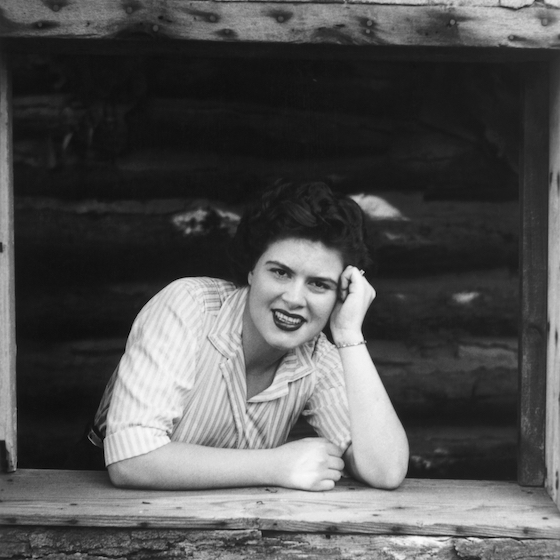
She Began Performing Professionally at 14
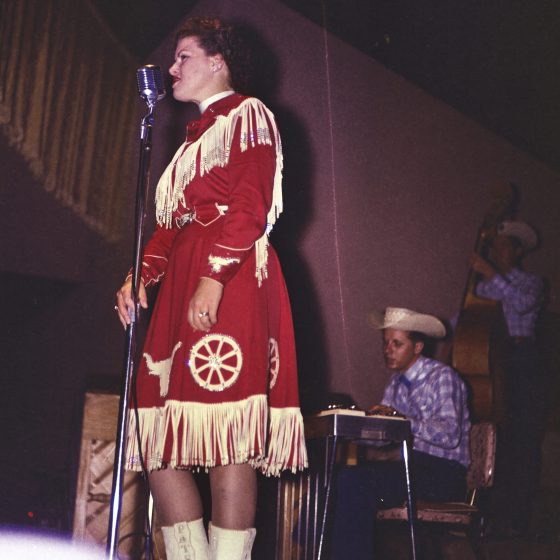
She Couldn't Read Music
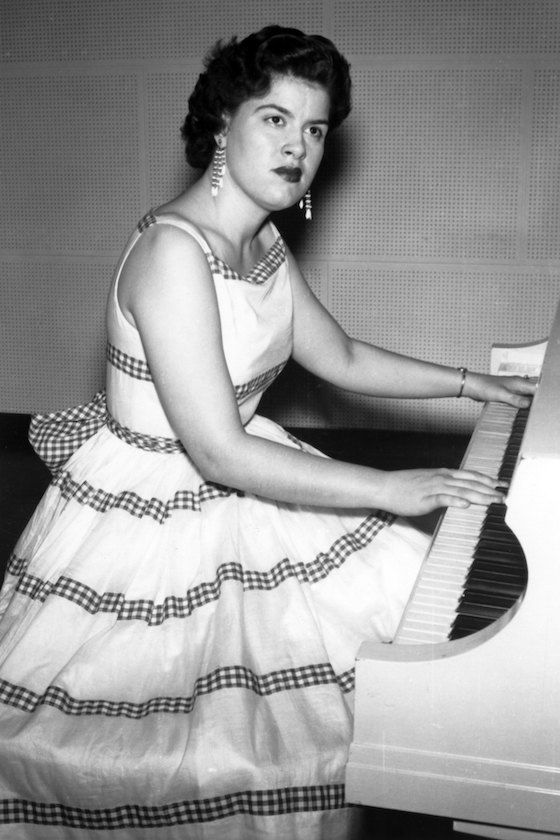
She Was a Trailblazer
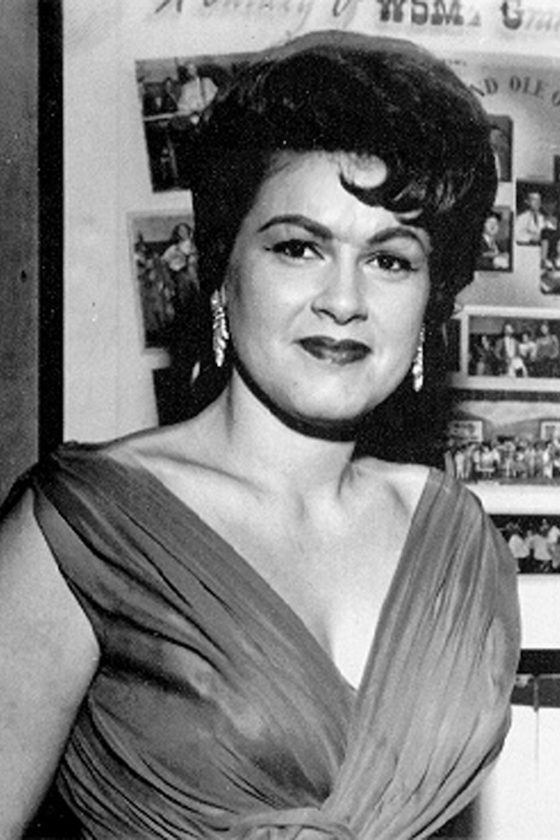
She Was a Favorite Among Songwriters
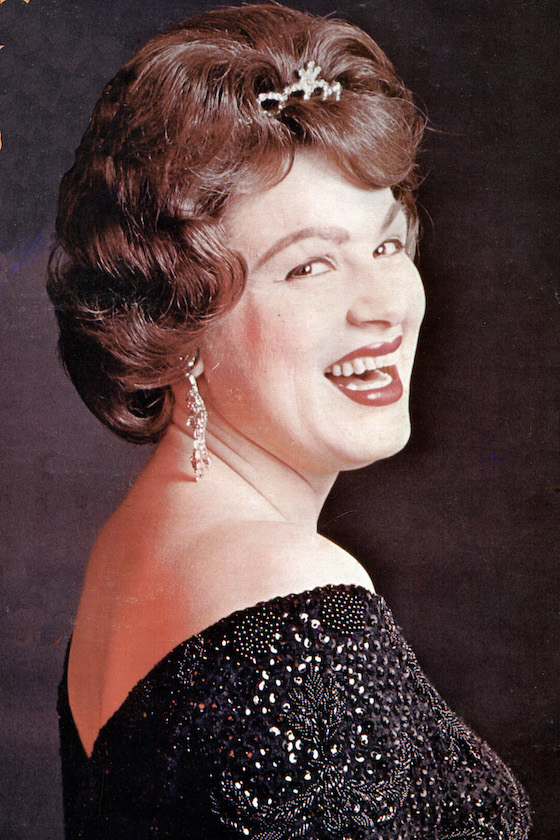
She Was a Kind and Loyal Friend
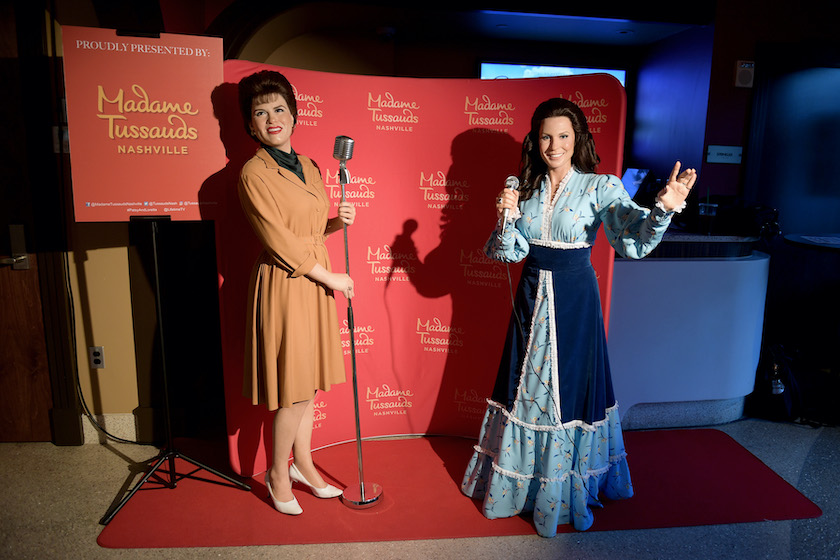
She's Been Portrayed By Two Golden Globe Nominees
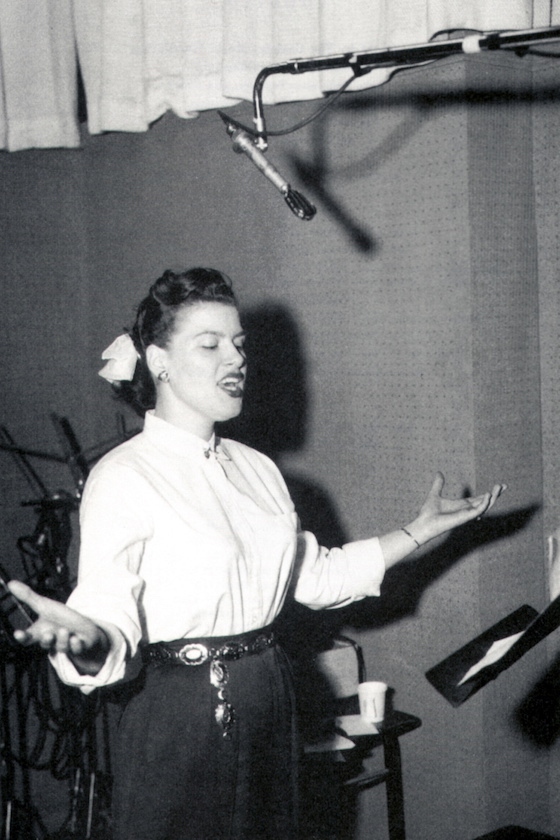
Her Earliest Songs Were Honky-Tonk and Rockabilly
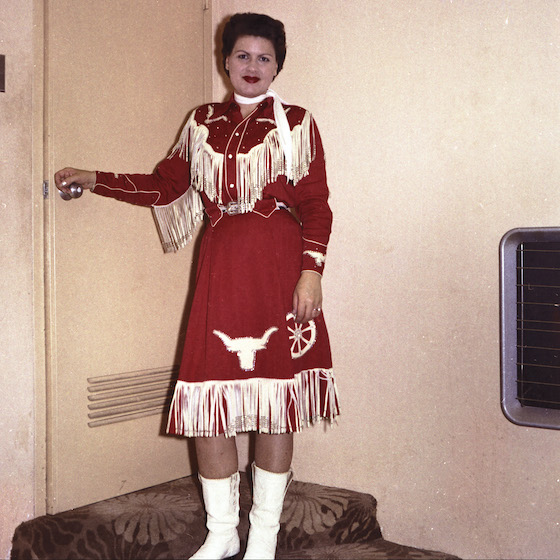
Her Fans Still Write Her Letters
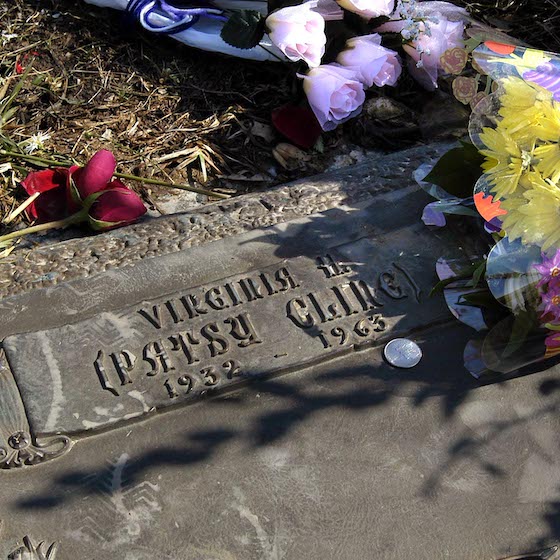
She Inspired a Play
